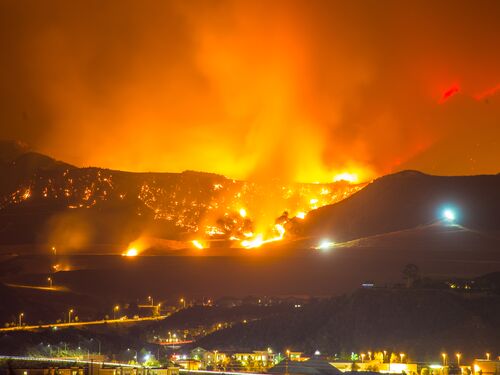Does the spread of COVID-19 slow down when the weather is warmer?
Based on Science
Some viruses vary by season, while others don’t. It is not yet known whether SARS-CoV-2, the coronavirus that causes COVID-19, is affected by the change in seasons.
Last update April 15, 2020
Viruses can be seasonal—or not—for many different reasons.
Air temperature and humidity affect how some viruses spread. For example, influenza spreads more quickly in drier and colder conditions. For other viruses, temperature and humidity do not affect disease transmission.
In some cases, a disease’s seasonality may have more to do with changes in human behavior—attending school and spending more time in crowded indoor spaces, for example—than with the weather itself. A virus's spread and impact may also be affected by seasonal changes in people’s immune systems or changes in the number of susceptible people in the population.
It's unclear which, if any, of these reasons will apply in the case of SARS-CoV-2, the novel coronavirus.
It’s still too early to tell if the novel coronavirus is affected by seasonal changes.
Since the pandemic began, warmer weather and more humid conditions have not been enough to slow the spread of COVID-19. People have been infected with SARS-CoV-2 around the world, no matter the season.
SARS-CoV-2 is a new virus in humans, so no one was immune to it when the pandemic started. Even if the virus spreads more slowly in warmer seasons, the large number of susceptible people means infections continue to grow even when the temperature is hotter and humidity is higher.
It may be that as more people get immunity to the virus, either by recovering from an infection or by getting vaccinated, outbreaks will become more seasonal, like we see for the flu. But we still don’t know.
There’s a lot you can do to slow the spread of COVID-19.
No matter the season, you can take action to protect yourself and others.
Improve ventilation in indoor spaces.
ADDITIONAL RESOURCES
CDC – Coronavirus (COVID-19), How to Protect Yourself & Others
COVID-19 Responses and Resources – National Academies of Sciences, Engineering, and Medicine
Coronavirus Disease 2019 (COVID-19) News and Resources – National Academy of Medicine
National Academies of Sciences, Engineering, and Medicine – Health and Medicine | Topic
World Health Organization – Coronavirus disease (COVID-19) Pandemic
More like this
Events
Right Now & Next Up
Stay in the loop with can’t-miss sessions, live events, and activities happening over the next two days.
TRB Annual Meeting | January 11 - 15, 2026
January 11 - 15, 2026 | The TRB Annual Meeting brings together thousands of transportation professionals worldwide for sessions across all modes and sectors.




